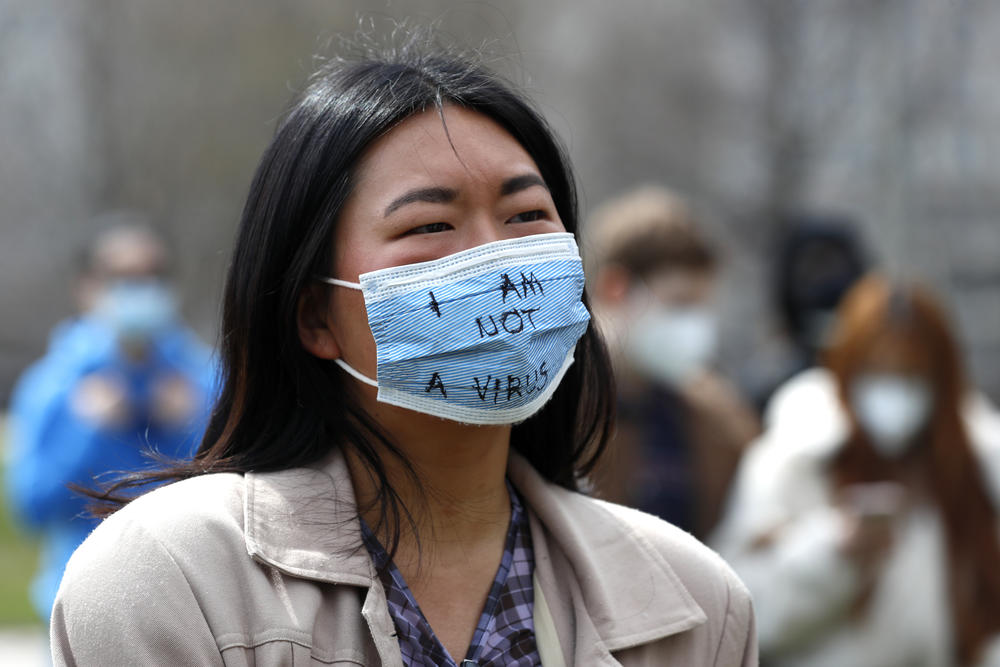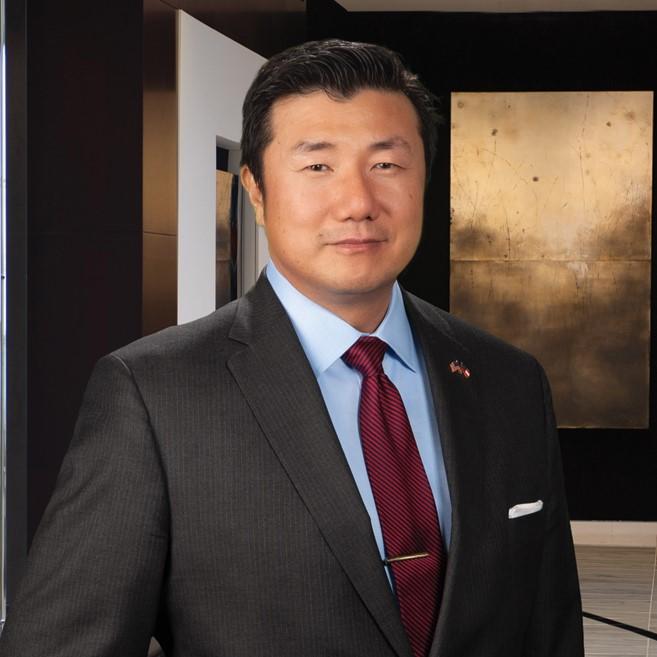
Caption
A demonstrator wearing a mask saying "I am not a virus" listens to a speech at a rally against Asian hate crimes, Saturday, March 27, 2021 at Chicago's Grant Park. The gathered crowd demanded justice for the victims of the Atlanta spa shooting and for an end to racism, xenophobia and misogyny.
Credit: AP Photo/Shafkat Anowar


